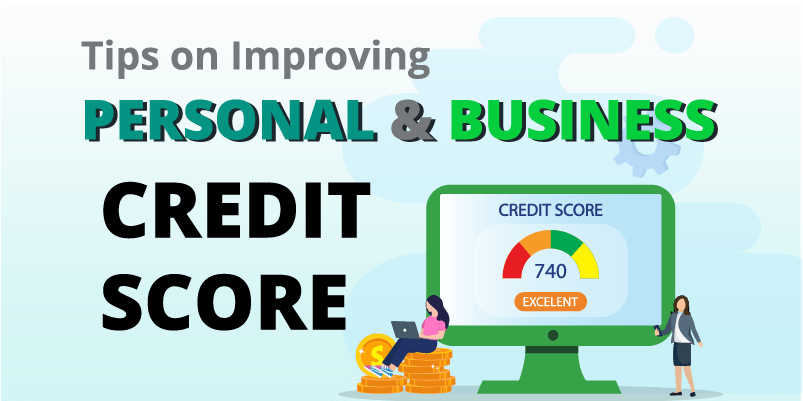Mastering Personal Loans: A Step-by-Step
Guide to Financial Success!

Personal loans can be a valuable financial tool when used wisely. Whether you need to consolidate debt, finance a major purchase, or cover unexpected expenses, understanding how personal loans work is essential. In this comprehensive guide, you will learn everything you need to know about personal loans, from their benefits to the factors to consider before applying. We will also take you through a step-by-step process of applying for a personal loan, comparing loan options, managing repayments, and improving your credit score. By the end of this guide, you will be equipped with the knowledge and strategies to master personal loans and achieve financial success.
Understanding Personal Loans
Before diving into the details, it’s important to have a clear understanding of what personal loans are. Personal loans are unsecured loans that allow you to borrow a fixed amount of money from a lender and repay it over a predetermined period of time, usually in fixed monthly installments. Unlike secured loans, such as mortgages or auto loans, personal loans do not require collateral. The lender evaluates your creditworthiness based on factors like your credit score, income, and employment history. $800/week for trying out filters on Snapchat
There are several benefits to using personal loans. First and foremost, personal loans offer flexibility in how you can use the funds. Whether you need to pay off high-interest credit card debt, finance a home improvement project, or cover medical expenses, personal loans can provide the necessary funds. Additionally, personal loans often have lower interest rates compared to credit cards, making them an attractive option for debt consolidation. Finally, personal loans can help build your credit history and improve your credit score if managed responsibly.
Factors to Consider Before Applying for a Personal Loan
While personal loans can be advantageous, it’s important to carefully consider a few factors before applying. Firstly, you need to assess your financial situation and determine how much you can afford to borrow. Consider your income, expenses, and existing debts to ensure that you can comfortably make the monthly loan payments without straining your budget. Secondly, evaluate your creditworthiness. Lenders typically require a good credit score for personal loan approval, so it’s important to review your credit report and address any issues before applying. Lastly, compare different lenders and loan options to find the best terms and interest rates that suit your needs.
Step-by-Step Guide to Applying for a Personal Loan

- Assess Your Needs: Determine the purpose of the loan and the amount you need to borrow. This will help you narrow down your options and choose the right loan terms.
- Check Your Credit: Obtain a copy of your credit report and review it for any errors or discrepancies. If there are any issues, take steps to resolve them before applying for a loan.
- Gather Documentation: Lenders will require certain documents to verify your identity, income, and employment. Collect your pay stubs, bank statements, and other relevant documents to speed up the application process.
- Research Lenders: Compare different lenders and their loan offerings. Consider factors such as interest rates, fees, repayment terms, and customer reviews to make an informed decision.
- Submit Your Application: Once you have chosen a lender, complete the loan application accurately and provide all the necessary information. Double-check the application before submitting it to avoid any errors or omissions.
- Review Loan Offers: After submitting your application, you will receive loan offers from various lenders. Carefully review the terms and conditions, interest rates, and fees associated with each offer before making a decision.
- Accept the Loan: Once you have selected the best loan offer, accept the terms and conditions. Read the loan agreement thoroughly and ensure that you understand all the terms before signing.
- Receive Funds: After accepting the loan, the lender will typically deposit the funds directly into your bank account. Be aware of any processing times or delays that may occur. Article Writers – $250 a day
By following these steps, you can navigate the personal loan application process with confidence and secure the funds you need.
Comparing Personal Loan Options
When exploring personal loan options, it’s crucial to compare different lenders and their offerings. Here are some key factors to consider when comparing personal loan options:
- Interest Rates: Compare the interest rates offered by different lenders. A lower interest rate can save you significant money over the life of the loan.
- Fees: Take note of any fees associated with the loan, such as origination fees, prepayment penalties, or late payment fees. These fees can impact the overall cost of the loan.
- Repayment Terms: Evaluate the repayment terms, including the loan duration and the frequency of payments. Ensure that the repayment schedule aligns with your budget and financial goals.
- Customer Service: Consider the reputation and customer service of the lender. Look for reviews and ratings to gauge the lender’s reliability and responsiveness.
- Loan Amounts: Determine the minimum and maximum loan amounts offered by each lender. This can help you find a lender that can accommodate your borrowing needs.
By comparing these factors, you can make an informed decision and choose the personal loan option that suits your financial situation best.
How to Manage Personal Loan Repayments
Once you have obtained a personal loan, it’s essential to manage your repayments effectively. Here are some tips to help you stay on top of your loan obligations:
- Create a Budget: Develop a budget that includes your loan repayment amount. This will help you prioritize your loan payment and ensure that you have enough funds available each month.
- Set Up Automatic Payments: Consider setting up automatic payments with your bank or lender. This eliminates the risk of missing payments and can even result in lower interest rates in some cases.
- Pay More Than the Minimum: If possible, pay more than the minimum monthly payment. By doing so, you can reduce the overall interest paid and shorten the loan term.
- Communicate with Your Lender: If you are facing financial difficulties and are unable to make a payment, communicate with your lender as soon as possible. They may be able to offer temporary solutions or alternative repayment plans.
By following these strategies, you can effectively manage your personal loan repayments and avoid falling into financial distress.
Tips for Improving Your Credit Score Before Applying for a Personal Loan

A good credit score is crucial when applying for a personal loan. It can determine whether you are approved for the loan and what interest rate you qualify for. If your credit score is less than ideal, here are some tips to help you improve it before applying for a personal loan: How to make $1,000 per day on complete auto-pilot 24/7
- Pay Bills on Time: Make sure to pay all your bills, including credit card payments, on time. Late payments can negatively impact your credit score.
- Reduce Credit Card Balances: Aim to keep your credit card balances low. High credit card utilization can negatively affect your credit score. Paying down balances can help improve your score.
- Avoid Opening New Credit Accounts: Opening multiple new credit accounts can raise red flags for lenders. It’s best to avoid opening new accounts before applying for a personal loan.
- Check Your Credit Report: Regularly check your credit report for any errors or discrepancies. If you find any inaccuracies, dispute them and have them corrected to ensure an accurate credit score.
By following these tips, you can work towards improving your credit score and increase your chances of securing a favorable personal loan.
Common Mistakes to Avoid When Taking Out a Personal Loan
While personal loans can be beneficial, it’s important to avoid common mistakes that can lead to financial difficulties. Here are some mistakes to steer clear of when taking out a personal loan:
- Borrowing More Than You Need: Only borrow the amount you truly need. Taking out a larger loan can lead to unnecessary debt and higher interest payments.
- Ignoring the Fine Print: Always read the loan agreement thoroughly and understand all the terms and conditions. Ignoring the fine print can result in unexpected fees or penalties.
- Not Comparing Loan Options: Failing to compare different loan options can result in higher interest rates or unfavorable terms. Take the time to explore and compare offers from various lenders.
- Missing Payments: Timely loan repayments are crucial for maintaining a good credit score and avoiding late payment fees. Missing payments can have long-term negative consequences.
By avoiding these mistakes, you can make the most of your personal loan and minimize any potential pitfalls.
Personal Loan Alternatives to Consider
While personal loans can be a useful financial tool, there are alternative options worth considering depending on your specific needs. Here are some alternatives to personal loans:
- Home Equity Loans or Lines of Credit: If you own a home, you may consider using a home equity loan or line of credit to access funds at a potentially lower interest rate.
- Credit Card Balance Transfers: If you have high-interest credit card debt, transferring the balance to a credit card with a lower interest rate or a promotional 0% APR offer can help save on interest payments.
- Peer-to-Peer Lending: Peer-to-peer lending platforms connect borrowers with individual lenders, often offering competitive interest rates and flexible terms.
- Borrowing from Family or Friends: If you have a trusted support system, borrowing from family or friends may be an option to explore. However, it’s important to approach these arrangements with caution and clear repayment terms.
Consider these alternatives alongside personal loans to determine the best fit for your financial needs and goals. Want To Earn An Extra $2000 Per Month?
Conclusion
Personal loans can be a valuable tool in achieving your financial goals, but they require careful consideration and responsible management. By understanding the ins and outs of personal loans, assessing your needs, comparing loan options, and managing repayments effectively, you can harness the power of personal loans to achieve financial success. Remember to take advantage of the tips and strategies outlined in this guide, and always make informed decisions based on your unique circumstances. With the right knowledge and approach, you can master personal loans and pave the way to a brighter financial future.
FAQs
Q: Can I use a personal loan for any purpose?
A: Yes, personal loans offer flexibility in how you can use the funds. Whether you need to consolidate debt, finance a major purchase, or cover unexpected expenses, personal loans can provide the necessary funds.
Q: How long does it take to get approved for a personal loan?
A: The approval process for a personal loan can vary depending on the lender and your individual circumstances. It can take anywhere from a few hours to a few days to receive approval.
Q: Will applying for a personal loan affect my credit score?
A: Yes, applying for a personal loan can have a temporary impact on your credit score. The lender will perform a hard inquiry on your credit report, which may cause a slight decrease in your score. However, if you manage the loan responsibly, it can also help improve your credit score in the long run.
Q: Can I pay off my personal loan early?
A: In most cases, yes, you can pay off your personal loan early. However, it’s important to review the loan agreement and check for any prepayment penalties or fees. If there are no penalties, paying off your loan early can save you money on interest payments.
Two-Tier Table Comparison (Example Only)
|
Lender |
Interest Rate |
Fees |
Repayment Terms |
Loan Amounts |
|
Bank A |
7.5% |
$100 origination fee |
1-5 years |
$5,000-$50,000 |
|
Bank B |
9.2% |
No fees |
2-7 years |
$2,000-$35,000 |
|
Bank C |
6.8% |
$50 late payment fee |
1-3 years |
$1,000-$25,000 |
